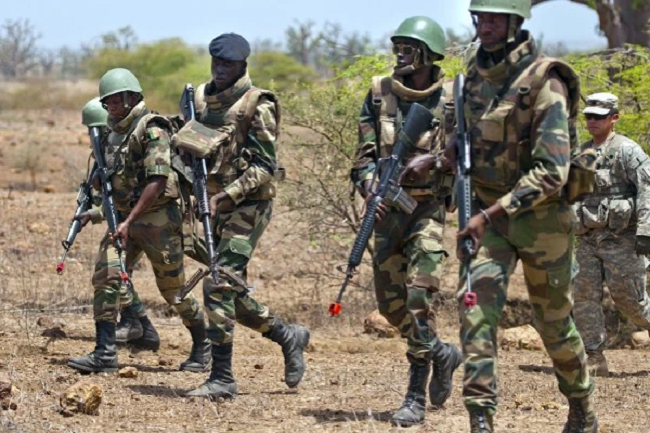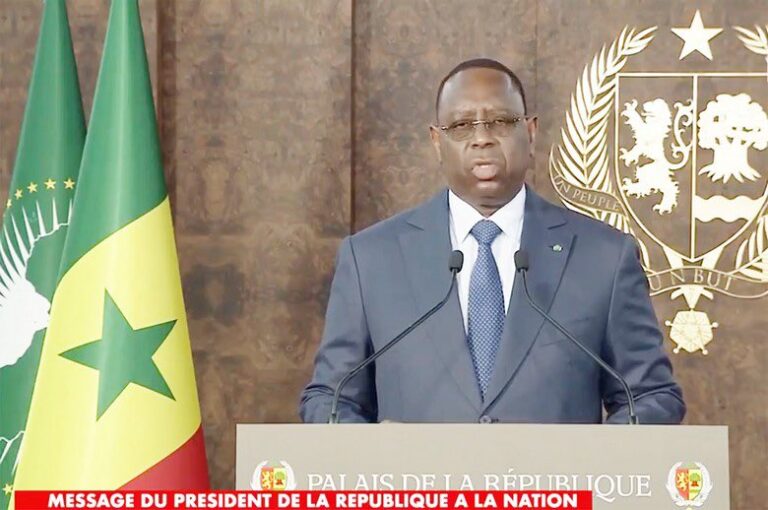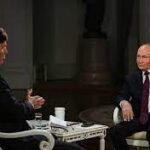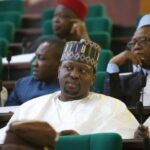The decision by Senegalese President Macky Sall to postpone presidential elections by 10 months poses a serious threat to the political stability and peace in the west Africa nation that has for many years been a resilient democracy. Senegal was plunged into its worst political crisis in decades after President Macky Sall announced a postponement to the poll originally scheduled for February 25. Opposition leaders have said the country is being taken “hostage”.
The U.S. State Department has described as illegitimate the postponement of the country’s presidential election.
Senegal had been heading for contentious presidential elections on February 25. The road to election day was difficult, as President Sall flirted with a third term bid before deciding against it, key opposition leaders were disqualified from contesting, and a popular political party was dissolved by state authorities. The turmoil triggered demonstrations in which dozens of protestors were killed. The president’s preferred successor, the competent but decidedly uncharismatic Amadou Ba, was certainly not assured of victory. Inside the parliamentary chamber, gendarmes intervened during the debate to forcibly remove opposition MPs, who had been obstructing the voting process.
Then, on February 3, President Sall announced that he was indefinitely postponing the election. His unprecedented act has moved the country from tension to full-blown crisis. On February 5, Senegal’s legislature has since set a December date for the polls, months after President Sall’s constitutional mandate ends on April 2. So, the contentious vote paves the way for President Macky Sall to remain in office until his successor is installed, probably in 2025. The opposition suspects the delay is part of a plan by the presidential camp to avoid defeat, or even extend Sall’s term in office, despite his reiterating that he would not stand. There is speculation that he has delayed the elections because he is not confident about the popularity of Prime Minister Amadou Ba, the candidate for Sall’s Benno Bokk Yakaar (BBY) coalition, who has been approved by the Constitutional Council. He was Minister of Finance and Economy from 2013–2019. On September 9, 2023, he was chosen by President Macky Sall to be the candidate of the United in Hope coalition for the 2024 presidential election.
Majorities have little to no confidence in the country’s leaders and governing institutions. The Senegalese people strongly support democratic governance–but the portion of the population that believes it is working well domestically has been declining.
Only about a quarter of Senegal’s young adults believe that their government is doing a good job in creating jobs or managing the economy. Senegal’s young people are growing more aggrieved and frustrated without confidence that they can peacefully and democratically affect change.
Did? It seems that Sall misread the mood in his country. He imagined that postponing elections would calm political tensions and provide time to resolve disputes so that the country would agree on the rules before polling, or that proceeding to elections with so many outstanding grievances regarding candidate eligibility would be too contentious. Sall said the poll had to be delayed to prevent potential electoral disputes that could erupt afterward.
Among those candidates who have been excluded is Karim Wade, a former minister and the son of former President Abdoulaye Wade, who was disqualified for having dual French and Senegalese citizenship – against the rules for candidates. Wade has lived in Qatar since 2016, when he was released from prison on a presidential pardon from Sall. He was serving a six-year term for corruption and has not attempted to return to the country since then.
The political party of Sall’s predecessor had pushed for a postponement when its presidential candidate was declared ineligible to run.
If so, it was a terrible miscalculation. It’s far too late to convince the population that he cares deeply about a level playing field. Sall’s abrupt decision reads as self-interested, imperious, and dangerously out of touch. Sall risks destroying the country in an effort to orchestrate his preferred electoral outcomes, promising only a pyrrhic victory.
Straying from an earlier proposed bill that set August 15 as the country’s delayed election date, lawmakers voted to hold the vote on December 15 instead, causing more public outrage.
After the violence in March 2021 and June 2023, following the conviction of Sall’s main opponent Ousmane Sonko, some religious authorities, opponents and even leaders in Sall’s coalition had defended the idea. “Their argument was that the country needed to be pacified before an election could be organized. ButThis postponement on the constitutional level is not legal.
The Senegalese constitution provides for major situations, that is to say, an institutional crisis, a blocking of institutions or security threats. But when President Sall addressed the nation over the weekend, he defended the delay, saying his decision adheres to the Constitutional Council’s January decision to exclude some prominent contenders from the electoral list. The Constitutional Council examined 93 dossiers and approved 21 candidacies. They declared Wade ineligible because he was a dual citizen of Senegal and France when he filed his paperwork, and the Senegalese constitution bars dual citizens from running for president. Two of the seven members of the Constitutional Council—the judicial authority that validates the eligibility of election candidates—have been accused of corruption. The accusations have not been formally investigated through the justice system and the Constitutional Council has refuted the claims, which came from Karim Wade, the son of former President Abdoulaye Wade and the proposed candidate of the ex-ruling Senegalese Democratic Party (PDS).
However, Neither the president nor the National Assembly has the unmitigated power to annul or change the date of elections. While the president and the legislature have the right to initiate revisions to constitutional law, their attempts to change the content of the legislation in question violates at least two clauses of the current constitution:Article 103, which indicates that the length of a presidential term cannot be modified, and Article 27, which limits each president to two terms.
Sall’s postponement of the election seems like a constitutional coup that preceded the eventual passage of the vote in parliament affirms the potential damage it could do to his reputation.
President Macky Sall reiterated that he won’t be seeking re-election this year, to the relief of many after the 2016 referendum, which sought to give him the chance to run again.
Thus, the postponement of the February 25 election is a clear attempt by President Sall to cling to power beyond his constitutional limit. He is trying to achieve the same outcome that previous manipulations had intended to achieve.This is the first time since Senegal’s independence in 1960 that a presidential election has been postponed.
Senegal’s reputation as a stable democracy also derives from the fact that it has– unlike other Francophone West African countries — never experienced a military coup. The leaders of the Senegalese Armed Forces have been silent about the constitutional crisis, which squares with the military’s history of professionalism and its mindful separation from partisan politics.
According to Afrobarometer, a pan-African, non-partisan survey research network, there is increasing dissatisfaction with how Senegal’s democracy is working.
“Afrobarometer surveys showed that most Senegalese endorse elections as the best way to choose their leaders.Across 39 countries surveyed in 2021 and 2023, Senegal recorded the third-largest proportion of citizens who prefer democracy to any other political system.

More on this story: Senegalese President jumps at the opportunity to root out Casamance separatism




